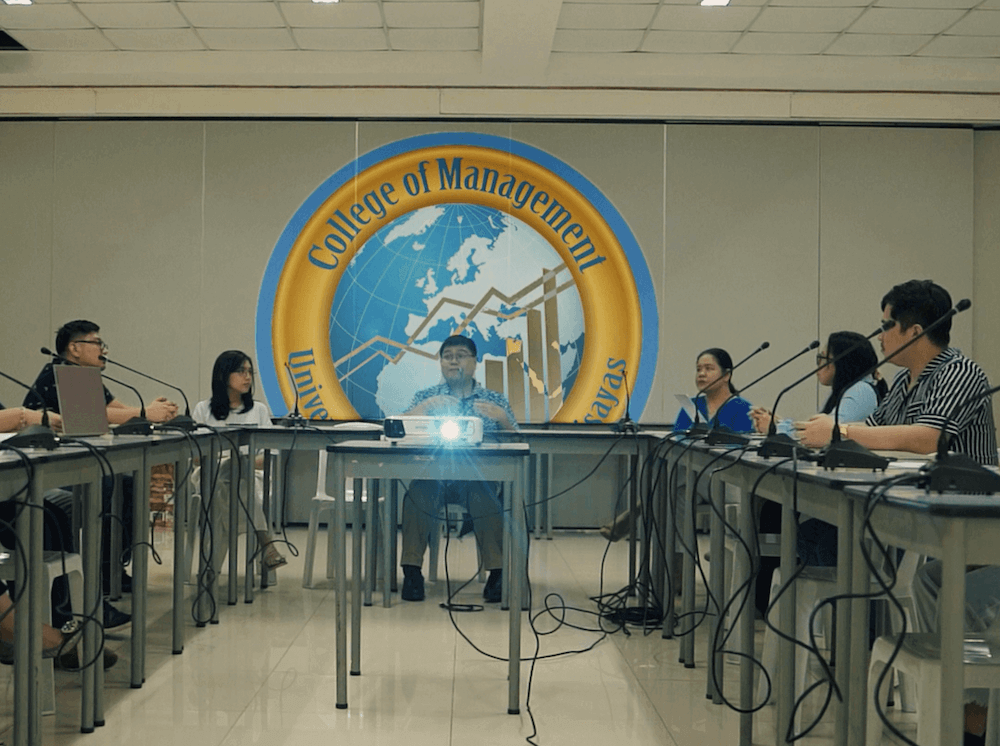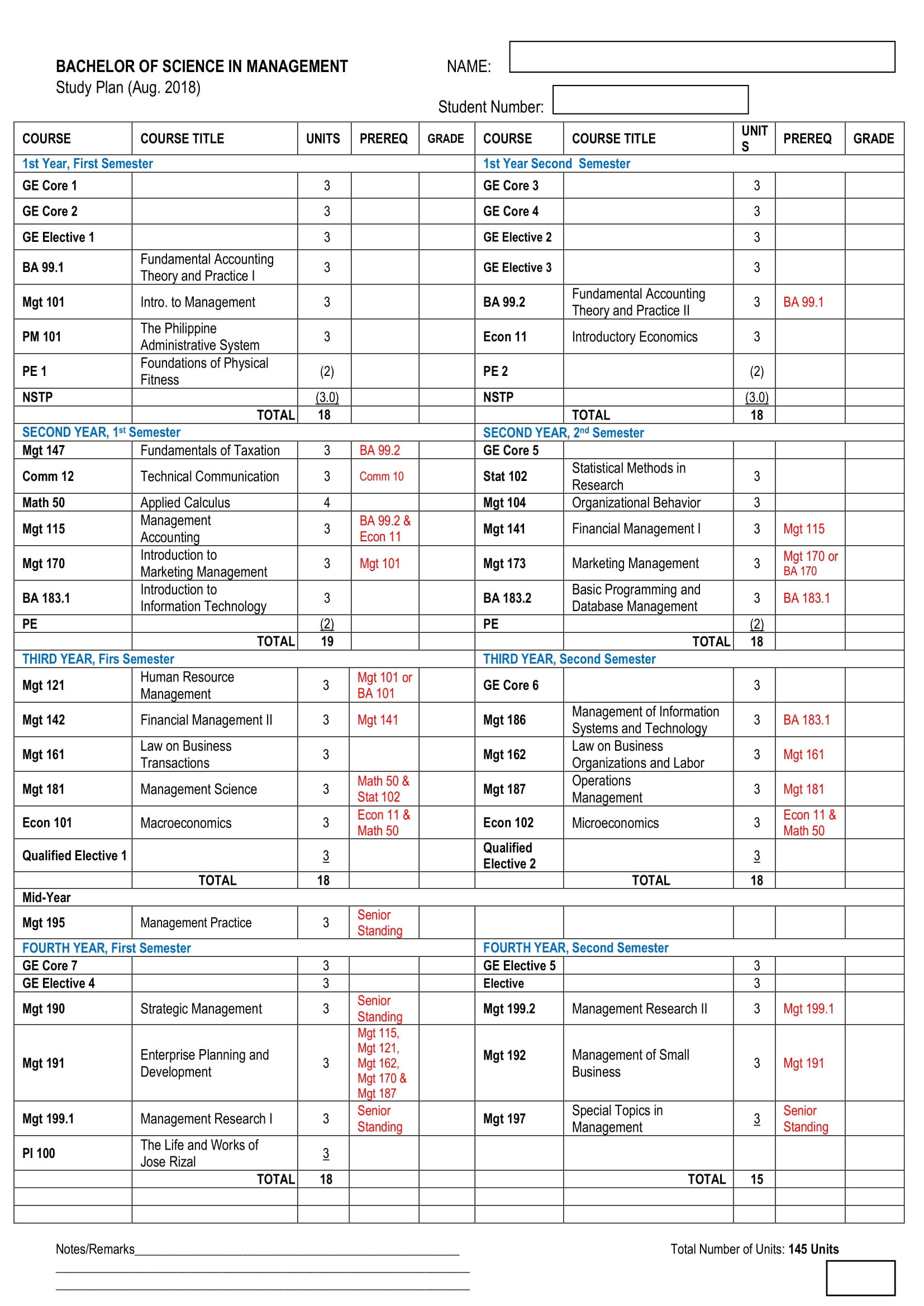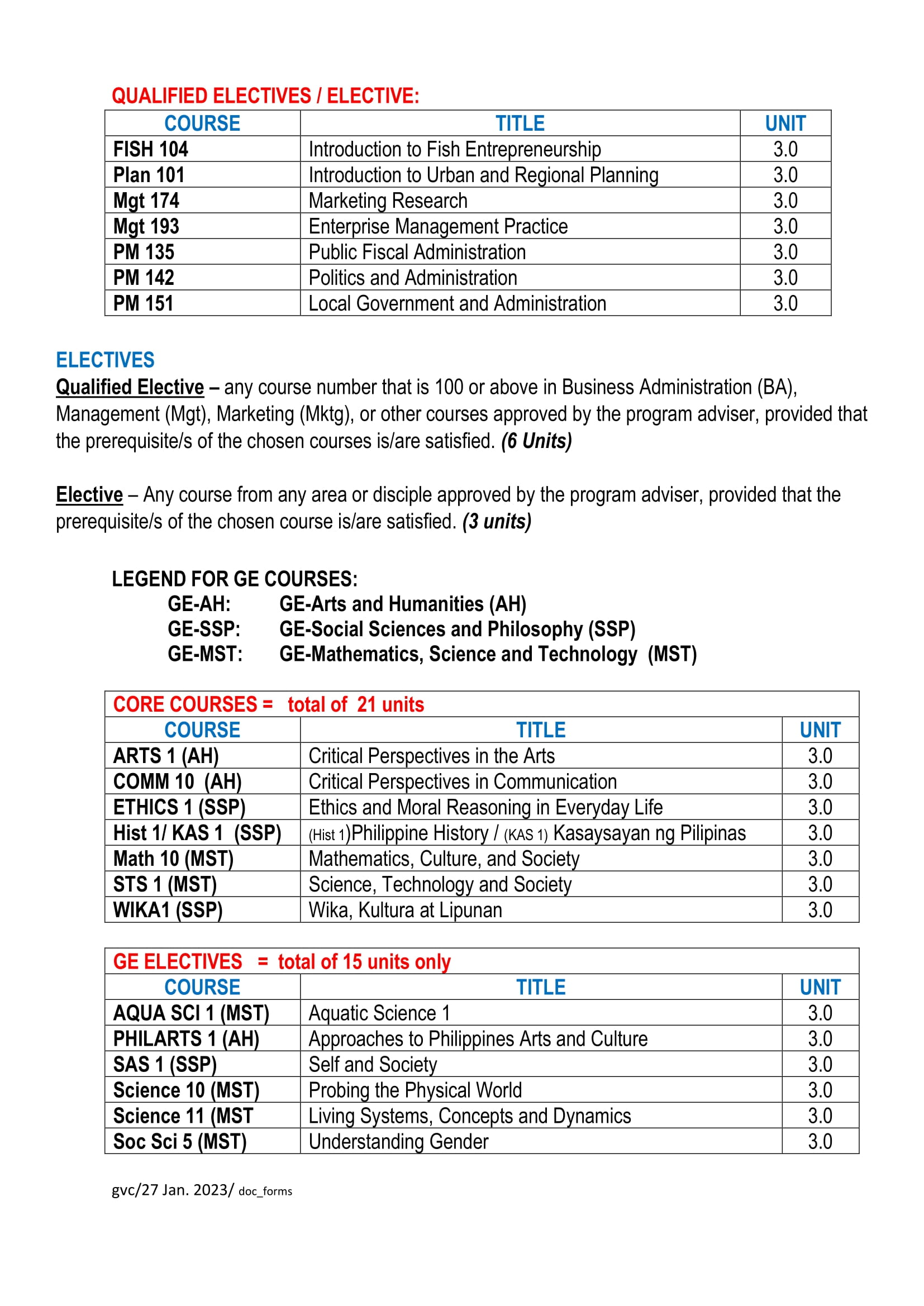
Course Overview
The Bachelor of Science in Management (BSM) is a 4-year baccalaureate degree program that aims to produce graduates equipped with the knowledge, psycho-social skills, and right attitudes to starting a career in business management, public/government institutions, or not-for-profit organizations. The field is dynamic and universal; with innovations and creative approaches in both theory and practice to address the emerging complexity of managerial leadership among its various stakeholders, namely: the budding entrepreneurs, business executives, public officials, development managers, development planners, health practitioners and many others.
The study plan requires a student to complete 145 credit units designed to produce well-rounded graduates. Main components of the curriculum include General Education Core and Elective courses, Elective Courses offered within the degree-granting unit, and Core Courses such as Introduction to Management, Management of Information Systems and Technology, Operations Management, and Strategic Management. Upon graduation, students acquire leadership, decision-making, negotiation, and critical thinking skills.




